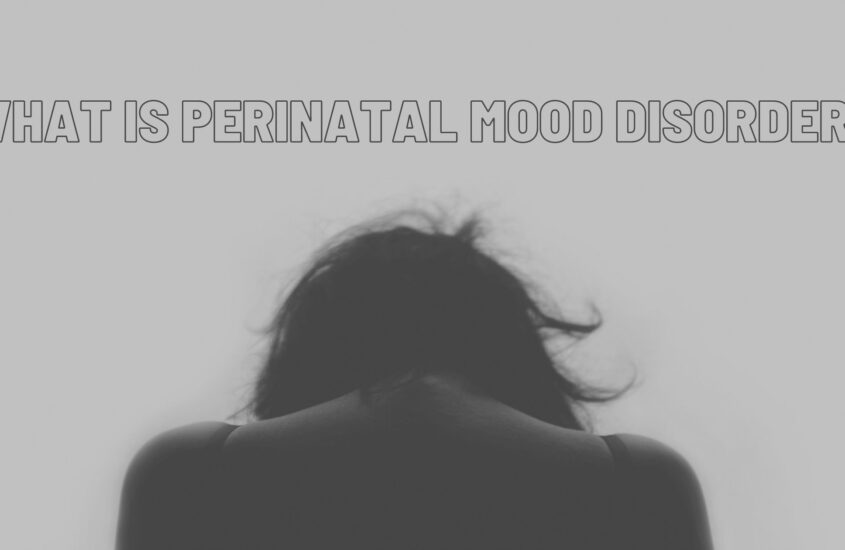What is Perinatal Mood Disorder?

During pregnancy and after childbirth, a mother’s body undergoes profound physiological changes that can impact both physical and emotional well-being. Perinatal Mood Disorder (PMD) includes conditions such as postpartum depression (PPD), as well as a variety of other conditions. It’s critical for new mothers and their support systems to understand the range of conditions to identify symptoms promptly.
In today’s post, we’ll explore the spectrum of PMDs and how to recognize their symptoms.
Perinatal Mood Disorders
Prenatal Depression
While many people are familiar with postpartum depression, which occurs after childbirth, prenatal depression occurs during pregnancy. It’s thought that as many as one in eight women may suffer from prenatal depression. Some of the most common symptoms of prenatal depression include uncharacteristic anxiety, persistent sadness, and disrupted sleep cycles. Depression often goes hand-in-hand with a tendency toward isolation, as well as a lack of enjoyment from hobbies and other interests. In severe cases, prenatal depression may cause someone to harm themselves or their baby.
Postpartum Depression (PPD)
PPD is the term used to describe depression occurring after childbirth. It is worth noting that postpartum depression can occur in combination with or without prenatal depression. While the “baby blues” may last for a few days or weeks after childbirth, postpartum depression can be persistent and severe. Some of the most common signs of postpartum depression include emotional dysregulation and mood swings, feelings of hopelessness or despair, and an inability to bond with the baby.
Because of the social pressures placed on new and expectant mothers, postpartum depression often goes hand-in-hand with feelings of guilt and shame.
Perinatal Anxiety
Our hormones are closely linked to our mental health, and as our hormones change throughout pregnancy, it can have a tremendous impact on our psychological outlook. Many women who have no history of anxiety struggle with it during and after pregnancy.
Postpartum Obsessive-Compulsive Disorder
New mothers sometimes fixate on thoughts related to the safety and well-being of their babies. Those with postpartum obsessive-compulsive disorder may find themselves locked into a state of hypervigilance, worrying over each cry or subtle change in the baby’s behavior. They may also engage in repetitive behaviors, such as checking on the baby at relatively short intervals or obsessively grooming the child.
Other signs of postpartum obsessive-compulsive disorder include:
- Intrusive thoughts
- Preoccupation with germs
- Need to clean or tidy
- Obsessive worries
- Inability to relax or feel safe
Postpartum Post-Traumatic Stress Disorder
While childbirth is often presented as an idyllic experience, the truth is that often, it can be harrowing or even traumatic. This is especially true in the case of women who experience complications before, during, or shortly after childbirth. Trauma is caused by a physiological reaction within the body related to our fight-or-flight instinct, leaving a lasting impact in the form of post-traumatic stress disorder.
Signs of postpartum post-traumatic stress disorder include:
- Depression
- Difficulty bonding with the newborn
- Fatigue
- Flashbacks
- Intrusive memories
- Mood swings; irritability
- Negative feelings about childbirth
Postpartum Psychosis
Somewhat rare compared to other perinatal mood disorders, postpartum psychosis comes on suddenly and can be severe. Postpartum psychosis includes the sudden onset of mood changes, disorganized thinking, insomnia, and what some women describe as feeling disconnected from their bodies.
In the most severe cases, postpartum psychosis may also involve auditory and visual hallucinations, persistent delusions, and paranoia. Postpartum psychosis is quite severe and represents a significant risk to the welfare of both mother and child. Timely intervention is key to helping mothers get the support they need.
Schedule an Appointment
Our bodies are incredibly complex, and pregnancy and childbirth put new mothers under tremendous physical and emotional strain. If you or someone you know may be struggling with a prenatal mood disorder, it’s critical to get the necessary support. Schedule a free consultation today if you’d like to discuss the challenges in your life and make a plan to tackle them together.




